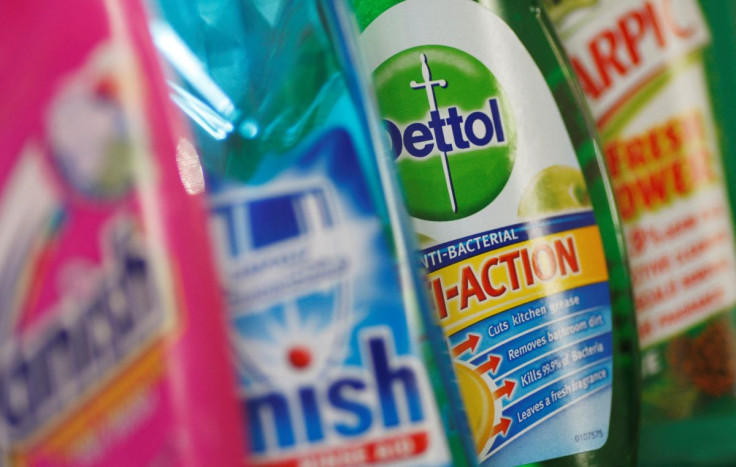Cost Of Living Crisis? Europe's Consumers Keep Spending

Europe's largest consumer-focused firms are seeing no shortage of demand despite a cost-of-living crisis, prompting several to upgrade sales forecasts for the current year.
Britain's Reckitt Benckiser, maker of Dettol and Lysol cleaning products, on Wednesday raised its full-year revenue forecast after steep price hikes helped it beat second-quarter sales expectations.o
France's Danone also lifted its annual revenue growth forecast after second-quarter like-for-like sales beat analysts' estimates on strong demand for baby food and bottled water.
Like rival Unilever, Reckitt and Danone have mainly relied on price rises to drive revenue. The biggest question for investors is how long that will continue.
"What we've seen is that the consumer has accepted these price increases but inflation is not pulling back," said Ashish Sinha, portfolio manager at Unilever and Reckitt shareholder Gabelli. "So as inflation increases, that raises questions on demand elasticity."
Shops and supermarkets in Britain increased prices by 4.4% in the 12 months to July, the largest rise since these records began in 2005, reflecting a jump in food and transport costs, the British Retail Consortium said on Wednesday.
Even McDonalds, which offers some of the cheapest meals on the high street, said Wednesday that it would raise the price of a cheeseburger by 20 pence to 1.19 pounds ($1.44) - the first increase for 14 years.
LUXURY GOODS IN VOGUE
Middle- and high-income households were able to build up substantial savings during the pandemic as restrictions made everything from foreign holidays to eating out more difficult. While some of these savings have since been eroded by inflation, they still have more flexibility to buy premium items.
In contrast, low-income households have been hit proportionately worse by inflation that richer ones because more of their income is spent on essential items ranging from food to fuel and accommodation.
The increased affluence has resulted in booming demand for luxury items such as sports cars and designer handbags.
LVMH, the world's biggest luxury goods firm, on Monday reported better than expected second-quarter sales, with robust U.S. growth and a recovery in Europe offsetting declining revenue in Asia.
"We're growing double digit with most of our brands so we cannot complain about European customers. On top of that we've got significant tourist activities in Europe," said LVMH financial chief Jean Jacques Guiony.
American tourists vacationing in London have been spending more because of the strong dollar.
For now, the increased prosperity of affluent consumers is offsetting the hit to revenues from lower earners spending less.
Automaker Mercedes, healthcare firm GSK, chocolatier Lindt, and sportswear maker Puma also upgraded sales forecasts this week.
"It's one of those moments where investors are looking at these results in Europe and thinking ... business has been resilient," said Danni Hewson, financial analyst at AJ Bell.
($1 = 0.8293 pounds)
© Copyright Thomson Reuters 2024. All rights reserved.




















